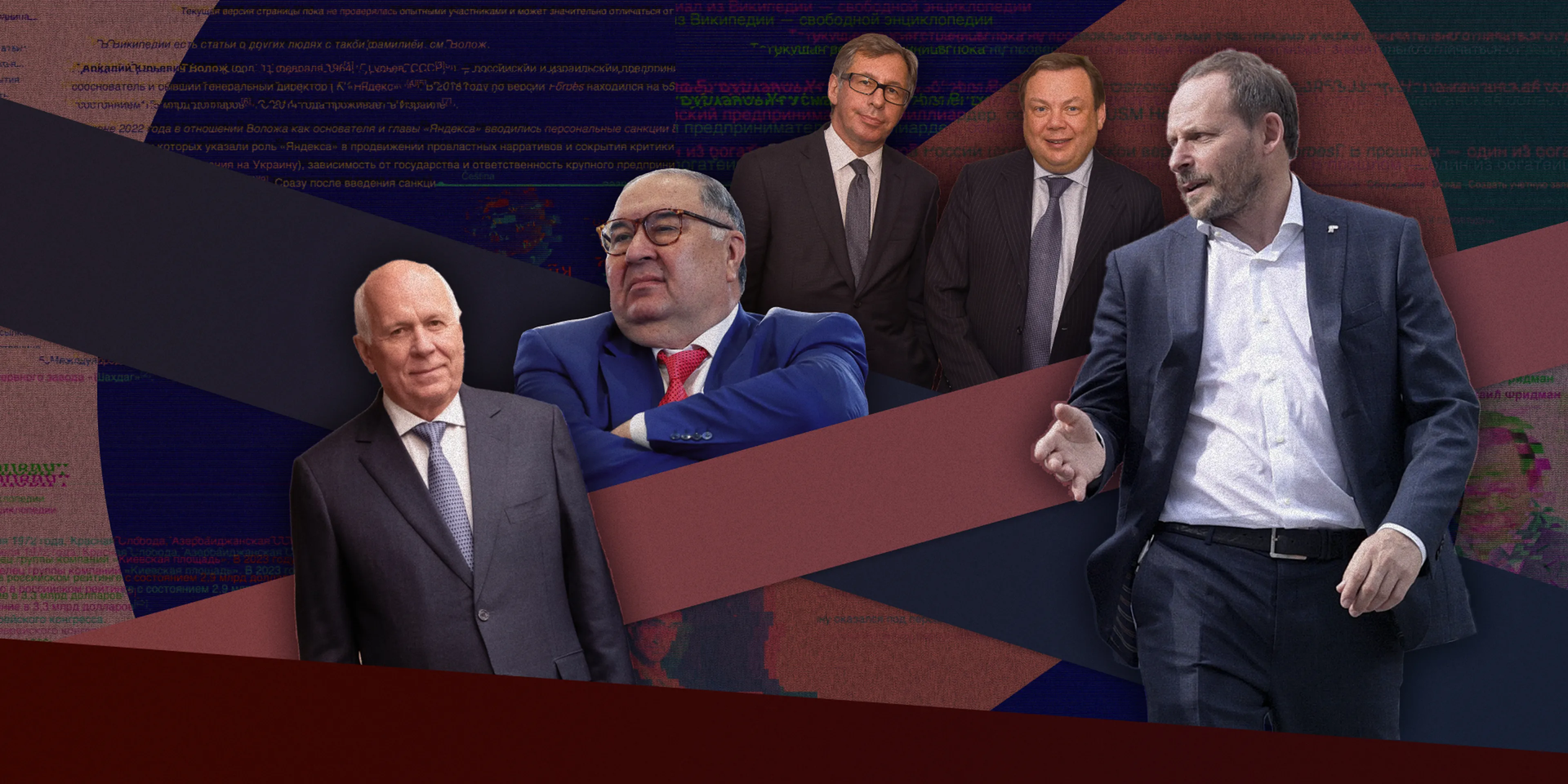
In March 2024, the European Union lifted sanctions on Arkady Volozh, the co-founder of the Russian IT company Yandex — an entity heavily criticized for becoming a tool of Kremlin censorship and propaganda. To achieve this, he had to step down as CEO of Yandex, a position he held for over 20 years, sell the Russian division of the business, and publicly condemn the war.
On his website, Volozh is now portrayed as an Israeli-born technology entrepreneur from Kazakhstan. Several attempts to remove references to the businessman’s links to Russia (1, 2) from the world’s leading online encyclopedia, Wikipedia, were made by an editor with a Tel Aviv IP address (Volozh himself has been living in Israel since 2015).
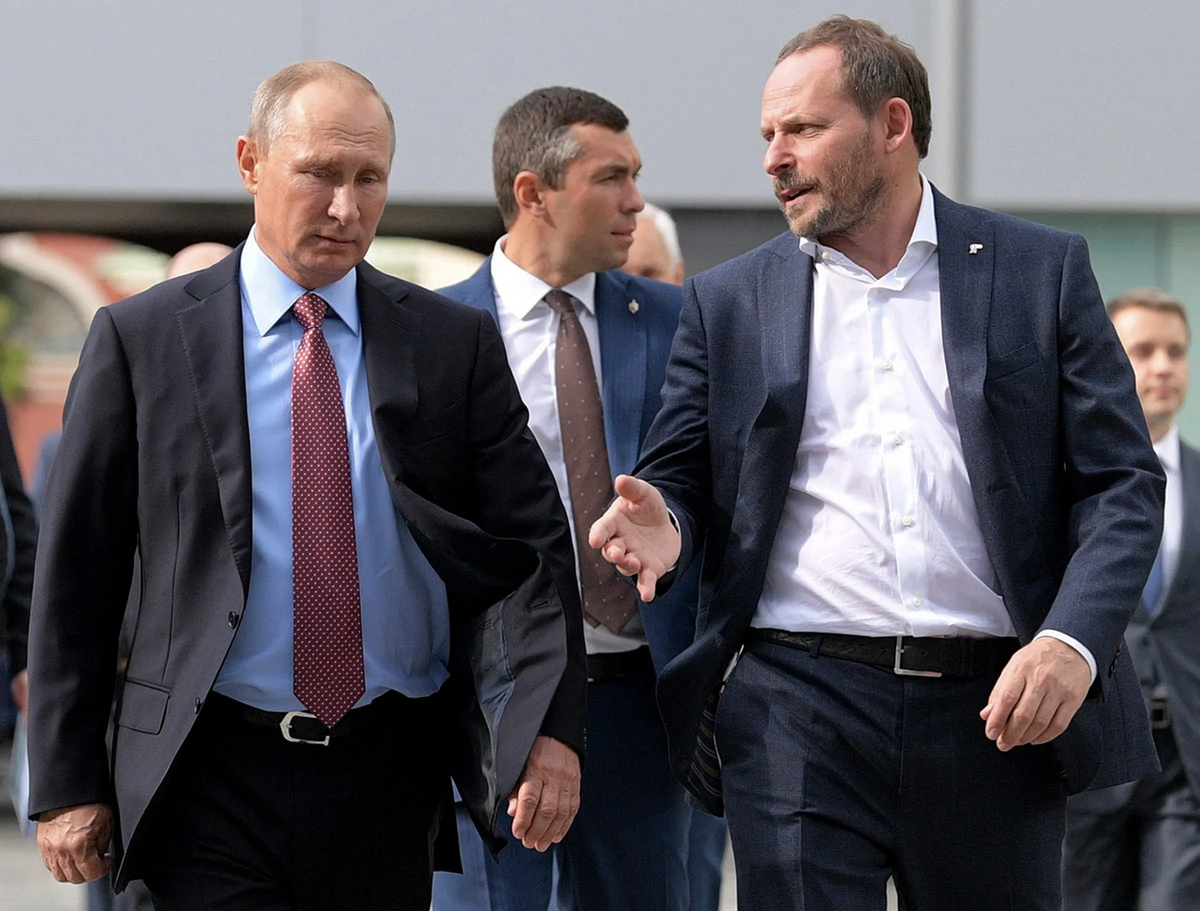
The co-founder of Yandex is not the only individual who, having amassed great wealth in Russia and collaborated with the Kremlin, attempted to change their public image on Wikipedia shortly after the full-scale invasion.
For this article, IStories joined forces with Wikiganda, a non-profit organization monitoring information manipulations on the global encyclopedia. We revealed how the wealthiest Russian businessmen, officials, top managers, and public figures edit Wikipedia to suit their interests. The investigation is based on the 2021 ranking of Russia’s Top 30 businessmen published by Forbes.
How to edit Wikipedia
Across the expanses of Wikipedia — both in Russia and abroad — a continuous “edit war” is being waged. Each month, the Russian-language encyclopedia is edited by over ten thousand users, and the English-language edition —by hundreds of thousands.
Meanwhile, Russian authorities are intent on eliminating the uncontrollable threat of Wikipedia — imposing fines, accusing it of publishing “fakes about the special military operation,” threatening blockage, and even attempting a version of “import substitution.” In Russia, there are currently two analogs of Wikipedia: Znanie.Wiki, an initiative by the propaganda organization Znanie (whose supervisory board is headed by the first deputy head of the Russian presidential administration, Sergey Kiriyenko) and the platform Ruwiki, whose investors remain undisclosed. Despite the latter’s murky financial picture, Wikiganda believes that VTB Bank may have a hand in the creation of the encyclopedia.
The founder of Ruwiki — former director of the Russian-language division of Wikipedia, Vladimir Medeyko — was dismissed from his previous role last year due to his clandestine work at Ruwiki. 1.9 million original Wikipedia articles have been copied into his encyclopedia. While copying articles from Wikipedia is not prohibited, the versions published in Ruwiki are heavily edited in accordance with the requirements of Russian censorship.
A prime example is the article on “Russia’s Invasion of Ukraine,” which was renamed “Military Actions in Ukraine” and edited to suit the rhetoric of the Russian authorities. Moreover, the registration of editors on Ruwiki was highly restricted until August 2023, with only “trusted” users being allowed to make edits (unlike Wikipedia, where most articles can be edited by any user without registration).
Conversely, image-conscious businessmen actively try to edit Wikipedia. In one such instance, Russian-language articles about Russia’s wealthiest woman, Tatyana Bakalchuk, and her online marketplace Wildberries, were extensively edited by a certain Newsman-8282 (who later identified himself to other editors as “Valery Prokopyev, head of the Wildberries press service.”) He, among other things, tried to remove information about a scandal related to the introduction of new penalties for sellers and strike action by staff at pickup points. In their place, he added data about Wildberries’ successful financial performance and the expansion of its branch network across different countries.
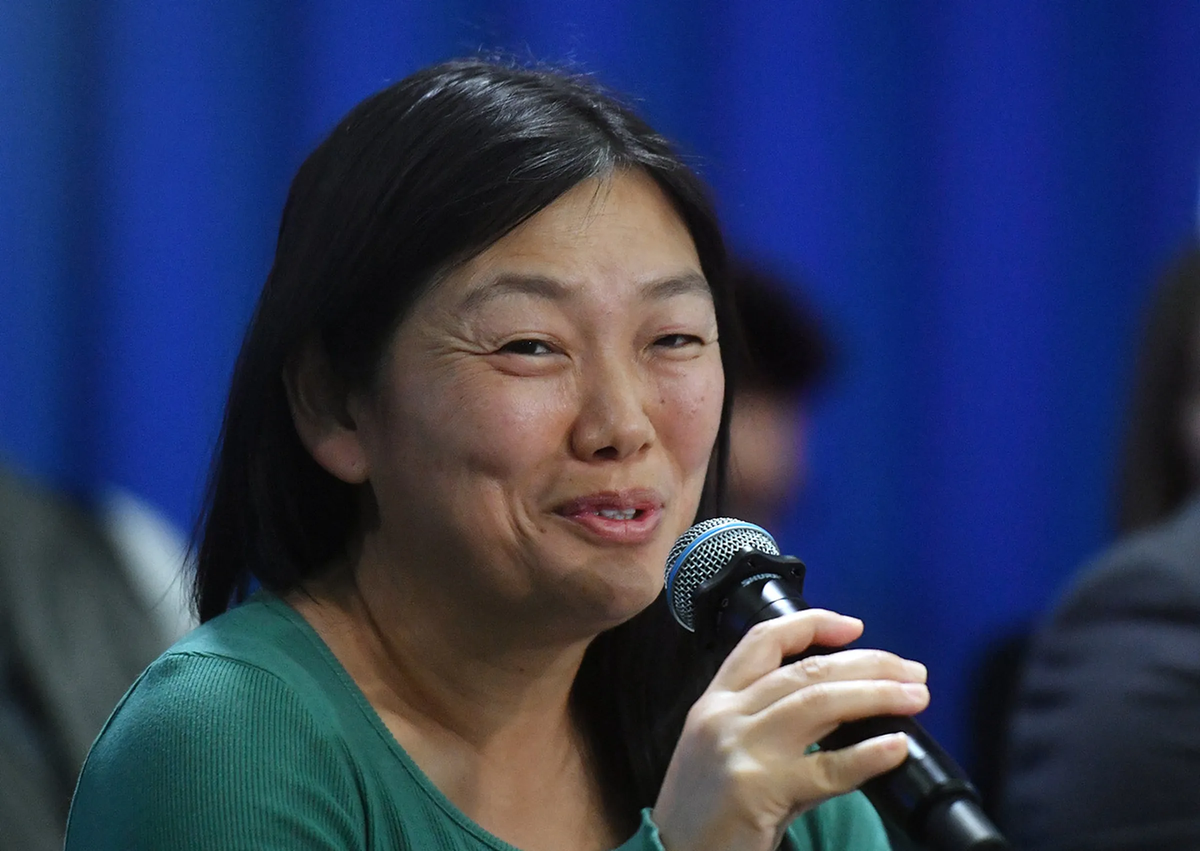
In March 2023, one of the administrators of the Russian-language Wikipedia under the alias “Полиционер” (Politsioner) blocked Prokopyev for “systematic advertising.”
Russian-language Wikipedia operates a patrolling system headed by a team of administrators who can protect articles from editing, delete and restore content, and block editors for violations. Below them in the hierarchy are trusted editors, whose revisions are considered correct by default. Anonymous users and newcomers do not have such privileges, with their actions being monitored to minimize potential harm.
Additionally, Russian Wikipedia deploys a bot, programmed to hunt down “harmful” edits. The bot is called Рейму Хакурей (Reimu Hakurei) in honor of a character from the Japanese video game, Touhou Project. Reimu is trained to identify disruptive edits and either revert them (editors can still contest its decision) publish them on a page dedicated to suspicious edits, send them to a special channel for manual review, or request administrators’ intervention.
Similarly, in the article dedicated to the Russian titanium giant VSMPO-AVISMA, you can find countless revisions made by editors with evocative usernames like AVISMA, Alexvsmpo-avisma, Vsmpo.
Editors operating under the usernames IvanViktorov25, AnastasiaRu, and Arina Gulyaeva work exclusively on articles about the head of VSMPO-AVISMA and Vladimir Putin’s long-time acquaintance, Sergey Chemezov, as well as his top managers, and the corporation’s enterprises. They are also quick to add outstanding profitability indicators for Rostec, pompous quotes from its CEO Sergey Chemezov (including his detailed response to the ACF’s investigation into his wife’s 5 billion rubles worth of real estate), as well as evidence of his philanthropic activities. In addition, editors record the successes of Vasily Brovko, the director of special assignments at Rostec. But their activity does not go undetected: Wikipedia administrators are already contemplating the deletion of the article about Brovko because they suspect that “the article is being substantially edited by the subject of the article or by an organization associated with him.”
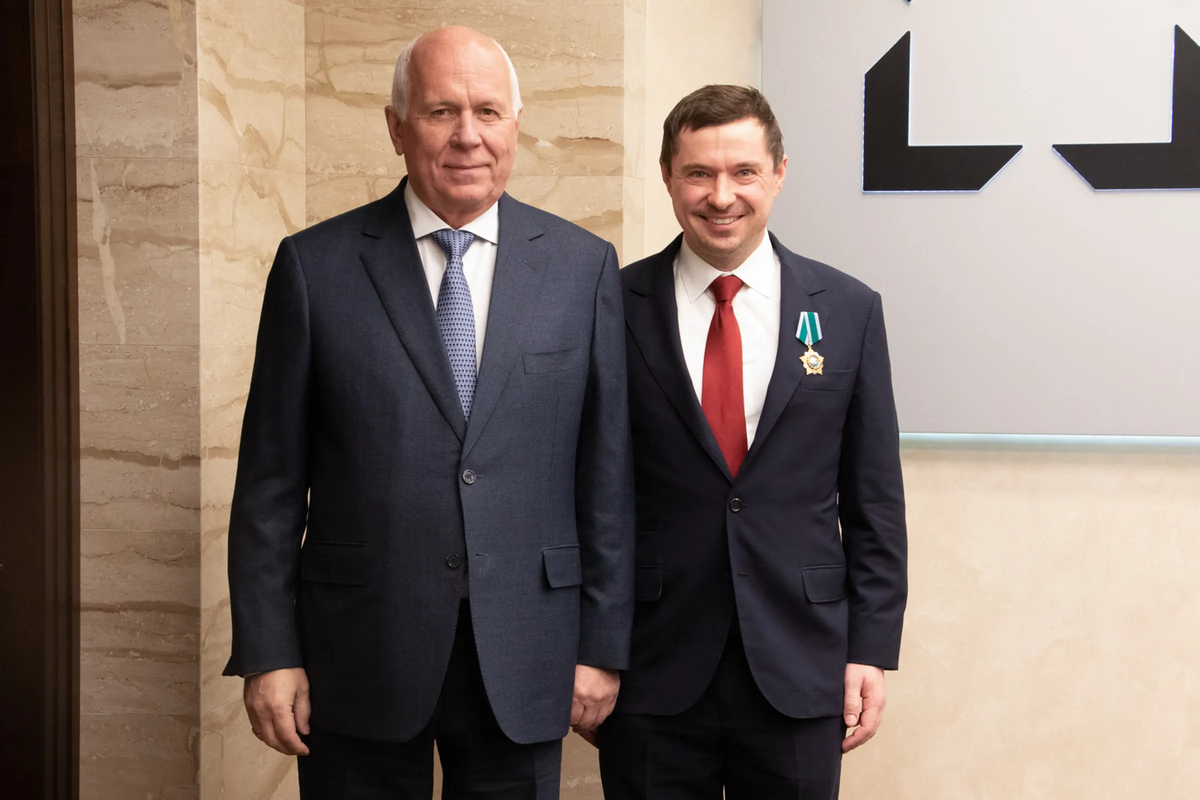
Another option is to hire the services of professional Wikipedia editors. According to the encyclopedia’s terms and conditions, this is possible, but such a participant must publicly declare a conflict of interest.
For instance, the editor The7bab, who admitted receiving payment for his edits, expanded the “Philanthropy” section of the article about billionaire Vladimir Lisin — stating that since 2010, the kind-hearted businessman has donated over 9 billion rubles for the treatment of complex diseases. Similarly, the self-confessed paid editor Oh.provista, wrote in February 2023 that Dmitry Mazepin, the founder of one of the world’s largest fertilizer companies, Uralchem, sold a 52% controlling stake of the company’s shares in March 2022 and stepped down from its management. This was a significant detail, given that the EU imposed sanctions against the businessman immediately after the start of the war.
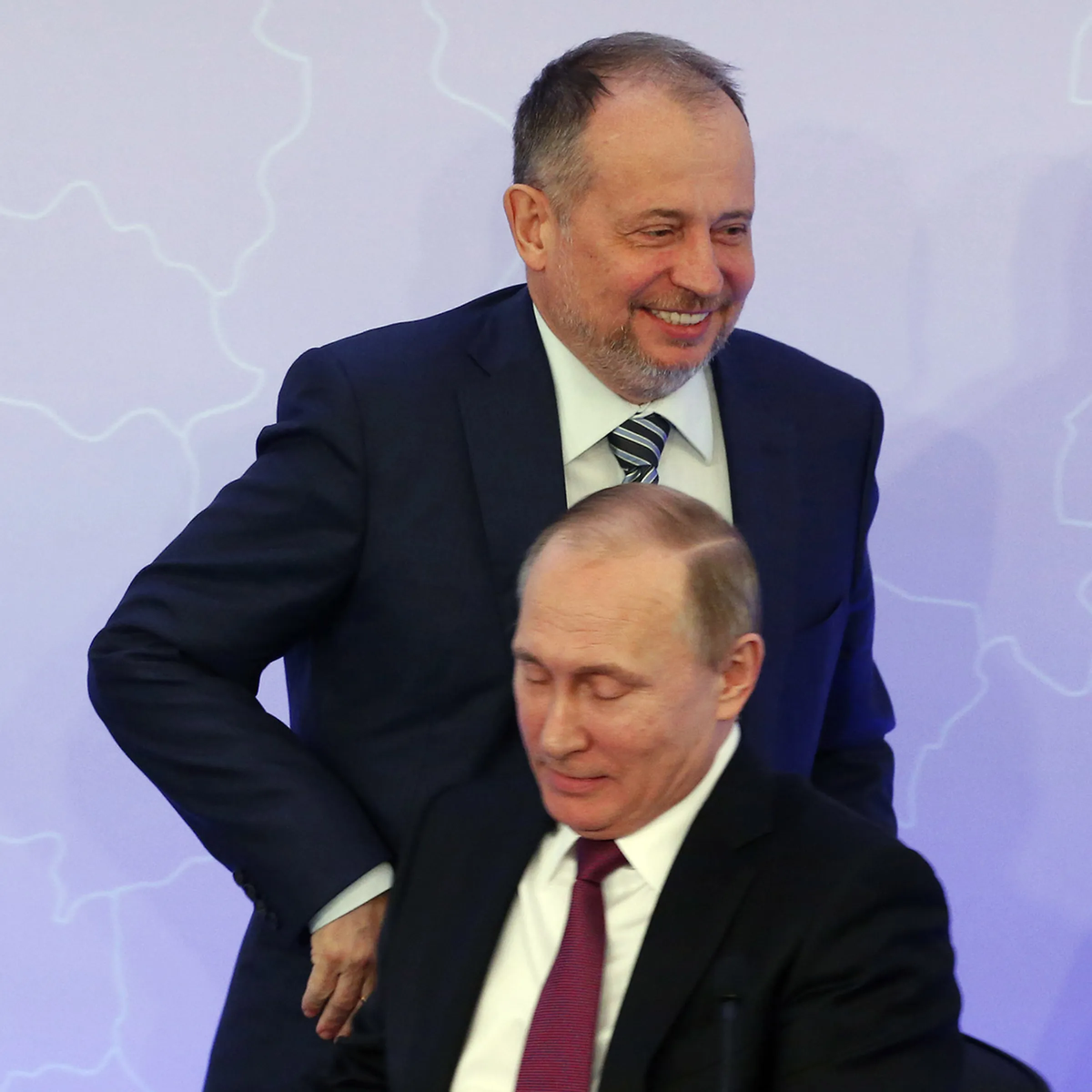
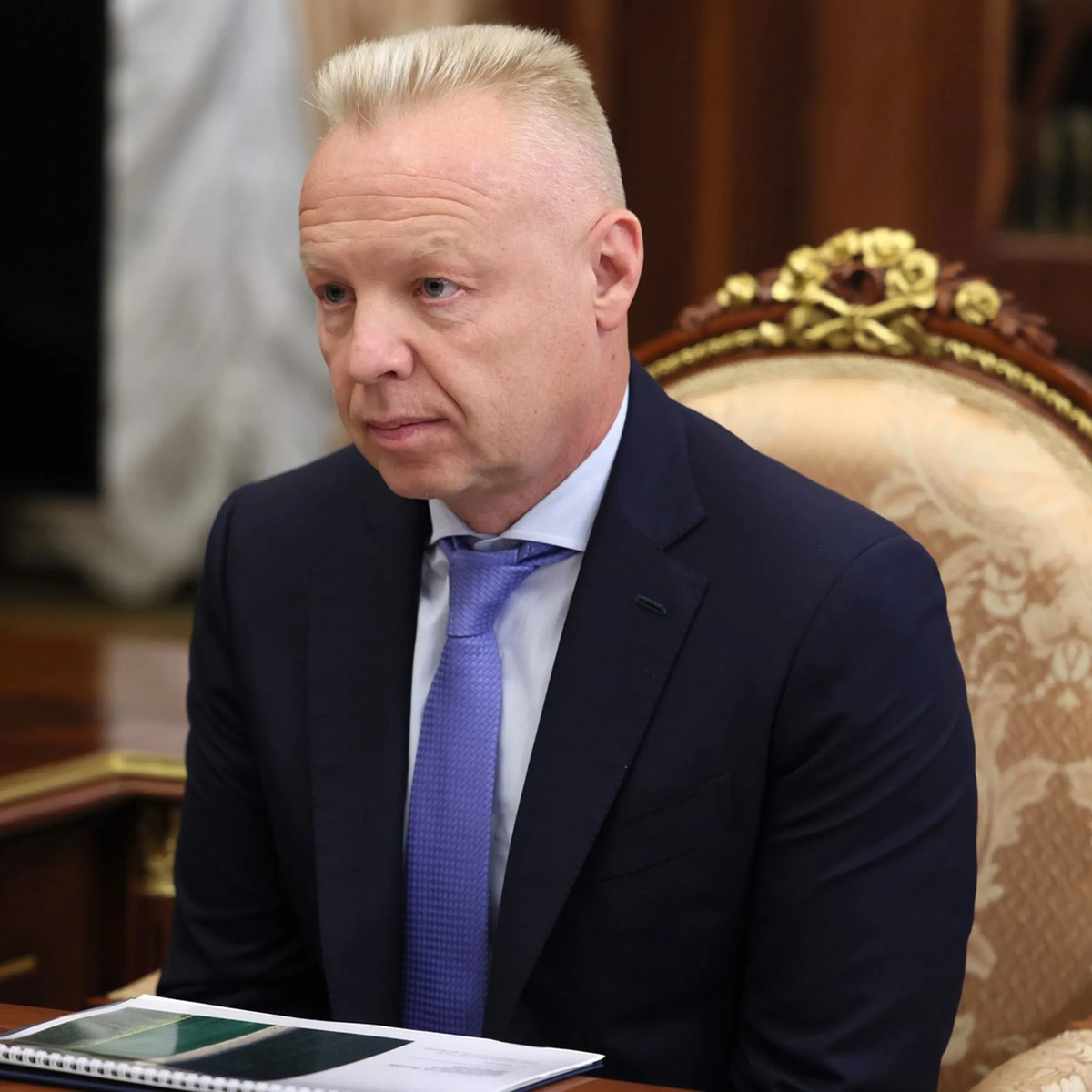
What they edit
With a focus on the Russian and English-language editions of Wikipedia, Wikiganda and IStories revealed edits made to nearly one hundred biographical articles dedicated to Russian billionaires, top managers, and artists. Several patterns emerged.
Editing information about sanctions and assets
- In the Russian and English Wikipedia biographies of Dmitry Pumpyansky, former owner of Pipe Metallurgical Company OJSC, the user Yahho attempted to remove all mention of sanctions imposed by the EU and the U.S (1, 2), and the seizure of the billionaire’s 72-meter superyacht.
- In October 2022, a user named Ешкин_Котофей tried to delete information about the British mansion and apartments owned by the founder of the Russian Copper Company, Igor Altushkin, from his Wikipedia biography.
- In December 2022, editor OnIPliOn managed to remove mention of a warrant to seize the $90 million private plane of billionaire and State Duma deputy Andrey Skoch, as well as possible links between the parliamentarian and the Solntsevo criminal group.
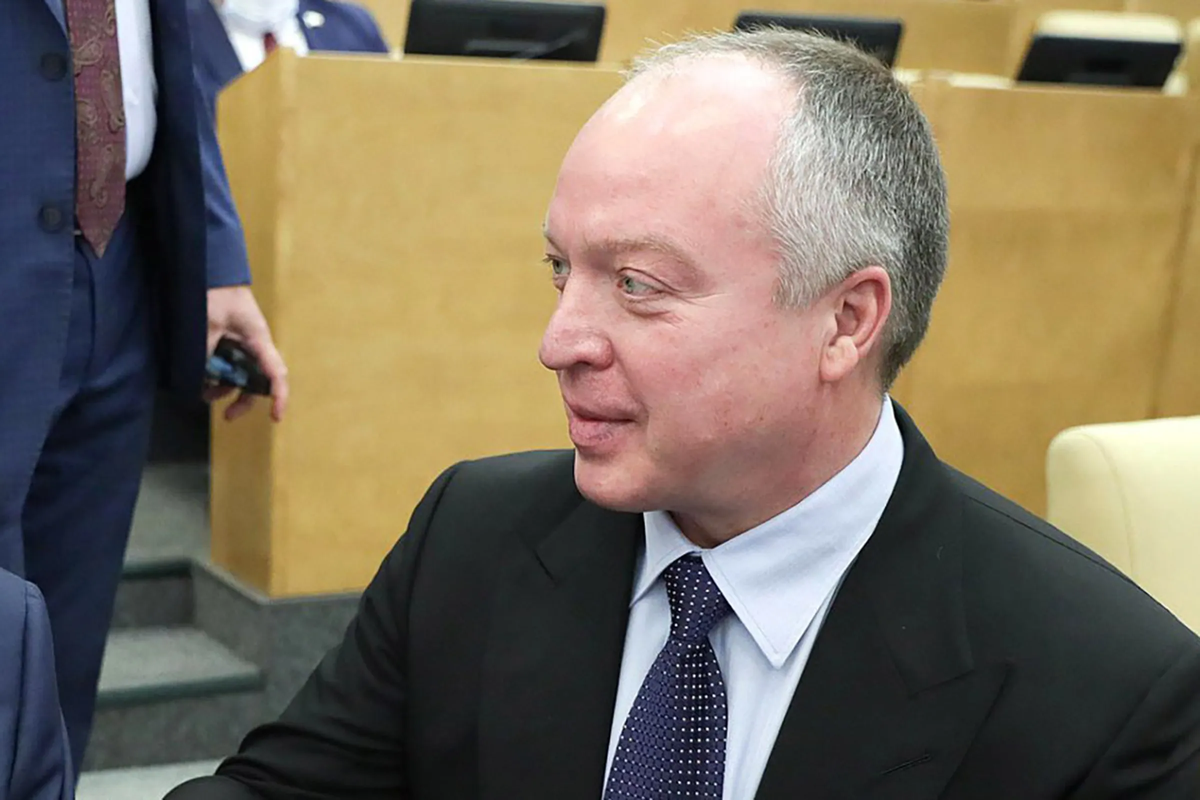
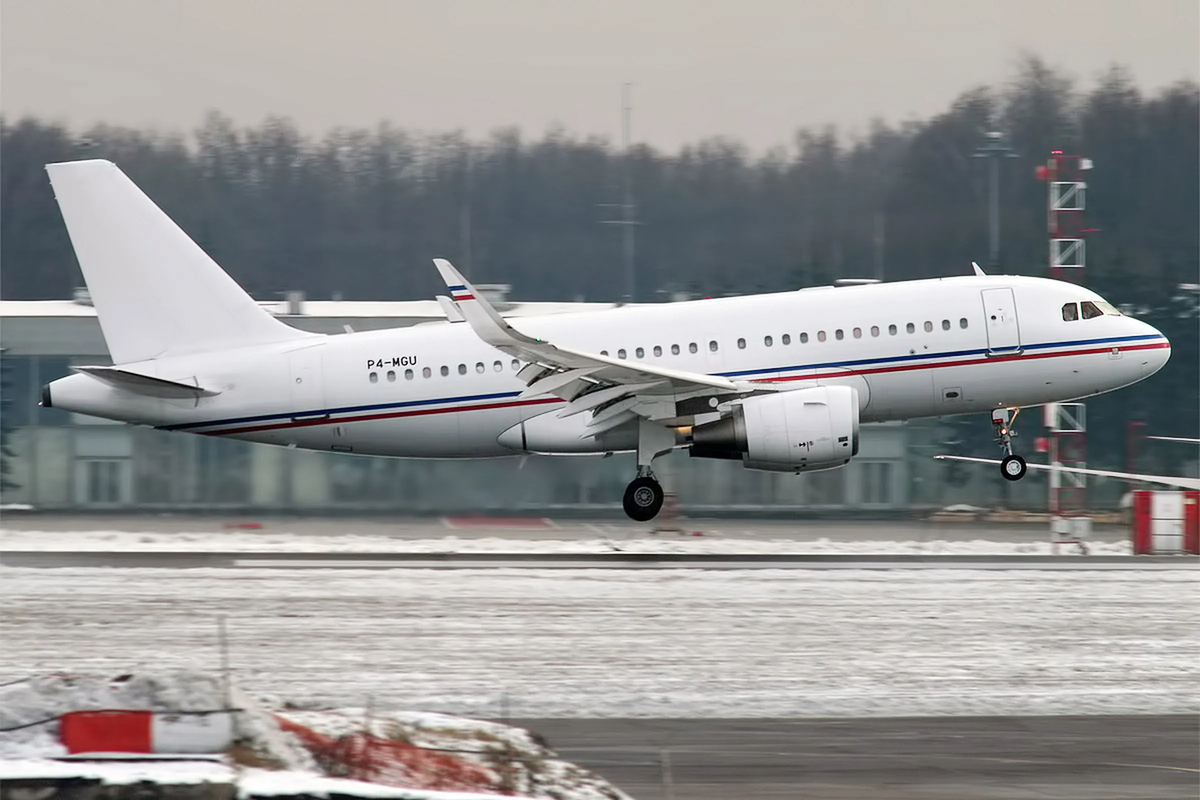
- In January 2024, attempts were made to edit the Wikipedia biography of God Nisanov, the co-owner of Kievskaya Ploshchad. PeaceLoveMaker sought to remove mention of imposed sanctions and the “golden passport” the billionaire received from Dominica in October 2023, but to no avail.
- In April 2023, an anonymous editor attempted to delete an entire section about sanctions against former senator and billionaire Farkhad Akhmedov in the Russian-language edition, but the information was promptly restored by Reimu Hakurei.
- In September 2023, an anonymous user attempted to remove information about Ukrainian sanctions imposed against the Wildberries marketplace and its owner Tatyana Bakalchuk, before Reimu Hakurei intervened.
- Anonymous users also tried to delete information about sanctions imposed against Putin’s daughters — Maria Vorontsova and Katerina Tikhonova. In the latter’s biography, attempts were also made to remove material uncovered by IStories and Der Spiegel’s investigations. In particular, about Tikhonova’s child she shares with ballet dancer Igor Zelensky and her trips accompanied by security service operatives.
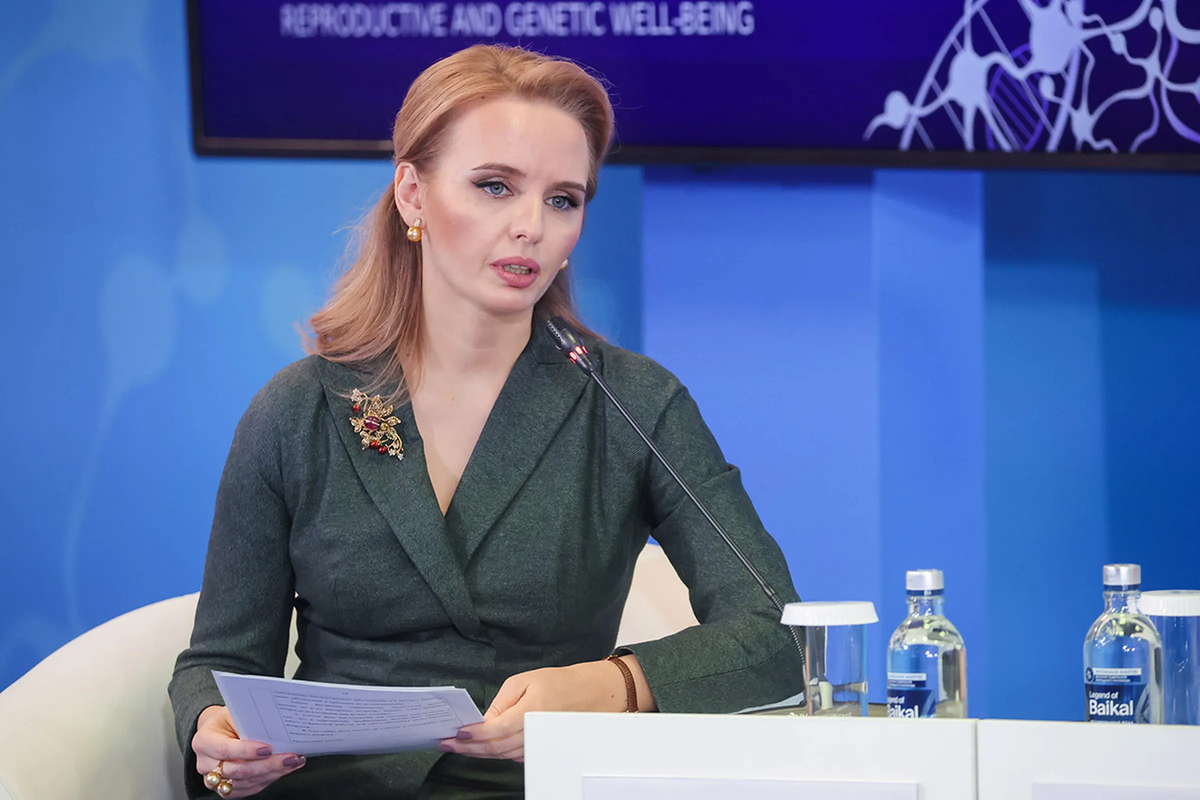
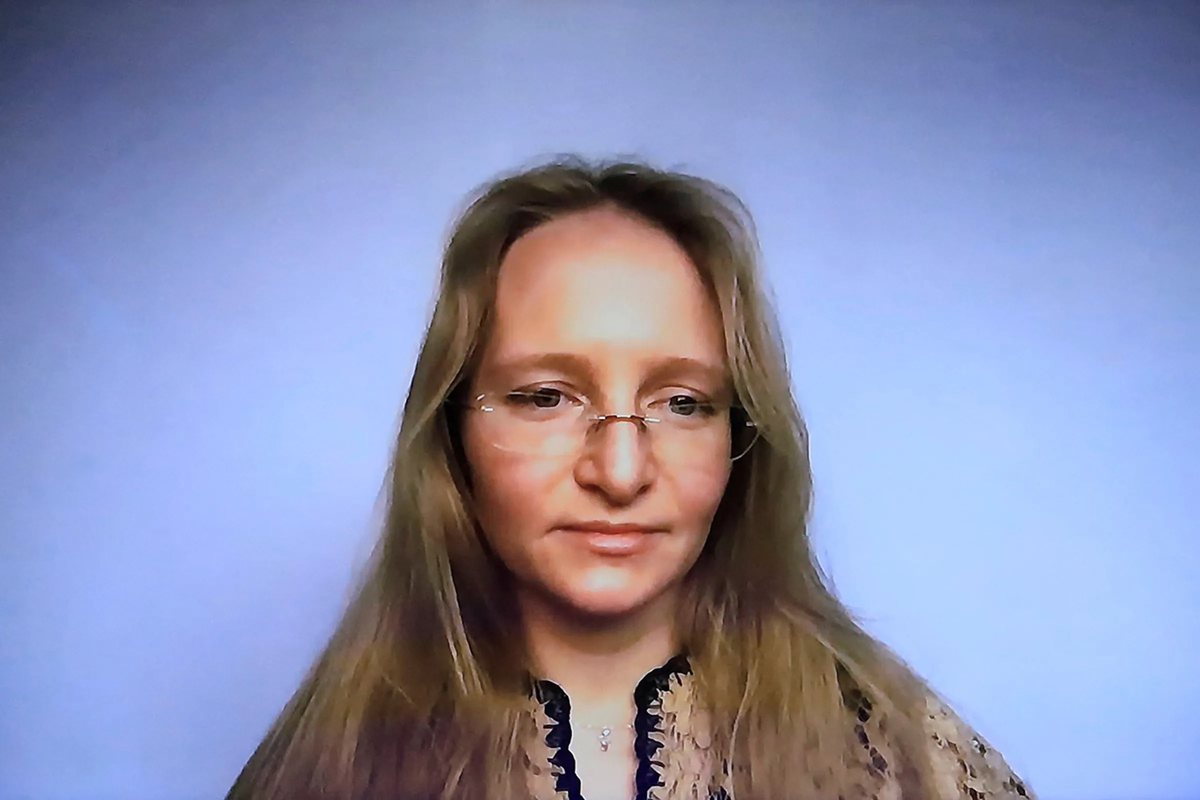
- In 2023, anonymous editors from Uzbekistan added information to the English-language biography of USM Holdings shareholder Alisher Usmanov pertaining to the oligarch’s victories over European authorities (1, 2, 3, 4) — including details of court rulings declaring searches of villas, apartments, yachts, and other real estate properties, which the German prosecutor’s office linked to Usmanov, to be unlawful.
Deleting evidence of Kremlin connections
- Editors operating under the usernames Epifantsev and Foxyra (who extensively altered articles about former shareholders of Alfa-Bank) acted more cautiously than those simply erasing information about sanctions. Epifantsev, for example, did not delete information about the restrictions imposed against Mikhail Fridman and Petr Aven, but made note of the businessmen’s assertions that the accusations made against them are slander. The edit remains to this day.
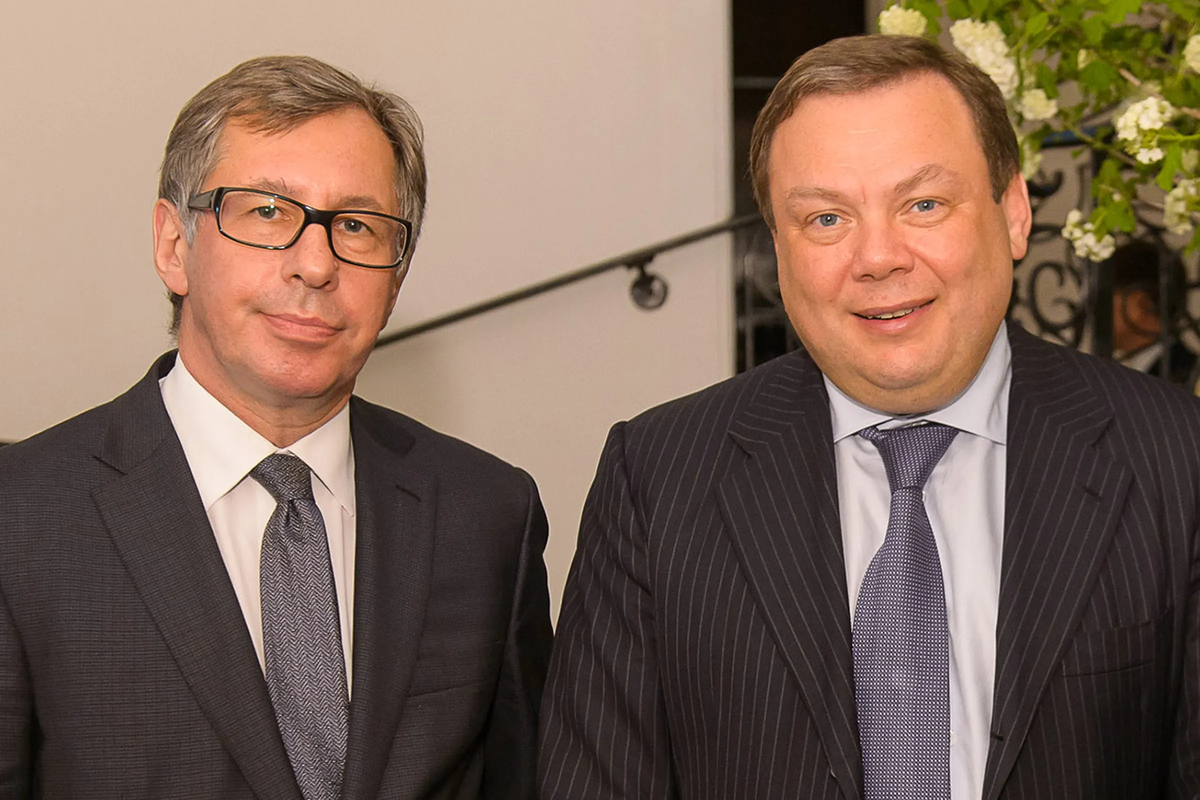
- Foxyra asserted that the Spanish prosecutor’s office dismissed the corruption case against Fridman, and in the English version, added that since September 2023 the UK Treasury no longer considers him a pro-Kremlin oligarch. Foxyra’s concern for the former shareholders of Alfa-Bank raised suspicions of paid editing, which Foxyra vehemently denied.
- In October 2022 and April 2023, anonymous editors removed from the biography of opera singer Anna Netrebko information about her connections with Putin (she was his confidant during the 2012 elections), assistance to the Donbass (in 2014, Netrebko donated one million rubles to the restoration of the Donbass Opera and was photographed with separatist Oleg Tsarev, holding a Novorossiya flag), and Ukrainian sanctions waged against her. Instead, one of the anonymous editors added that the Metropolitan Opera “illegally” suspended Netrebko and “harassed the singer.” These statements were later removed.
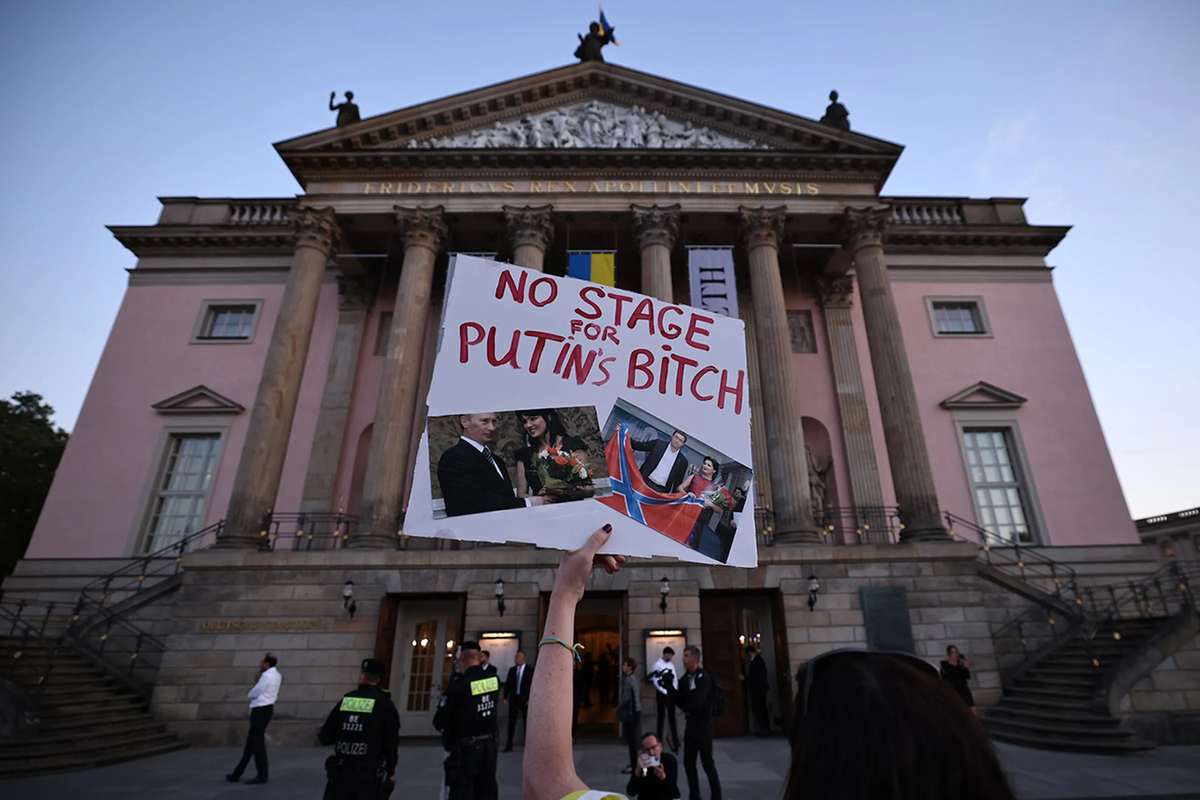
Editing information about their origins
- A series of edits by Bartolimeo attempted to create the impression that Russian billionaire Alexander Mamut, who owned the Rambler Group until 2020, has long cut ties with Russia and is an entrepreneur from London with Israeli citizenship.
- In May 2022, attempts were made to edit an English-language article about Sberbank’s first deputy chairman, Lev Khasis, who now resides in Miami, Florida. An anonymous user with a Florida IP address tried to state that Khasis is an American manager, and that he left Sberbank and Russia in protest to its invasion of Ukraine.
- Thanks to the work of an anonymous editor, Denis Sverdlov, former co-owner of Yota, suddenly transformed into a Georgian billionaire in his English-language biography shortly after the beginning of the full-scale invasion. Spotting the unusual occurrence, an experienced editor restored Sverdlov’s Russian origin.
Deleting references to corruption investigations
- The biography of God Nisanov has been reworked by both anonymous editors and the user Kirill1337leet — who works solely on articles about the owner of Kievskaya Ploshchad. They constantly (1,2,3,4) attempt to remove information uncovered by the independent media outlet Proekt about Nisanov’s connections with Sergey Naryshkin, director of the Foreign Intelligence Service. The story of how Nisanov’s former business partner, Ilgar Gadzhiev, accused him of attempted murder is also something that the editors repeatedly try to conceal. Instead, Kirill1337leet was quick to mention that the billionaire was named the “Man of the Decade of the Mountain Jewish Community.”
- Keen to create a positive impression, Vladimir Putin’s press secretary Dmitry Peskov’s Russian-language article has also been heavily manipulated in an attempt (1,2,3) to remove mention of the ACF’s investigation into the luxurious lifestyle of his son, Nikolai Choulz.
Changing anything they don’t like
- In the Russian-language article about State Duma deputy and Ramzan Kadyrov’s associate Adam Delimkhanov, anonymous editors have made repeated unsuccessful attempts (1,2,3) to remove a section stating that he "regularly recorded staged videos with soldiers allegedly participating in combat operations," resulting in Chechen units in Ukraine dubbing them “TikTok troops.”
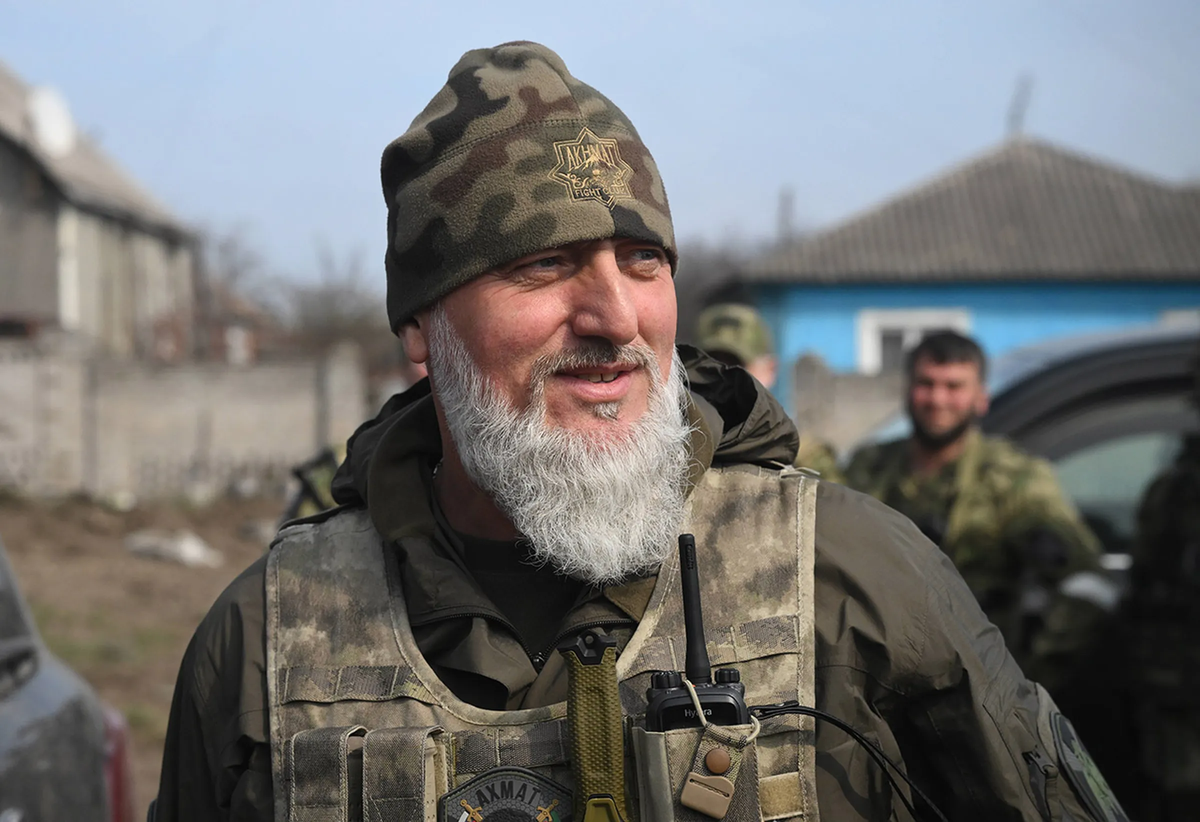
- Attempts to remove the term “propagandist” from the article on Vladimir Solovyov were unsuccessful.
Just some standard PR
Editors HasanovCemil, Cemilhasanov1, EastThermopolis, Helloword1qq, Umfront worked extensively on an article about former senator and billionaire Farkhad Akhmedov (a recording of his alleged conversation with producer Iosif Prigozhin about Putin, the war, and the “screwed up country” leaked online last year and was widely quoted).
After their edits on Russian Wikipedia, Akhmedov transformed into a gifted entrepreneur who “never participated in so-called loans-for-shares auctions and did not use state budget subsidies”. The English-language version of Akhmedov’s biography was also edited in 2021 by the same HasanovCemil and Cemilhasanov1. In the first weeks of the war, information modified by an anonymous user appeared in his English-language biography, proclaiming his role as a mediator in Russian-Ukrainian peace talks in Antalya “alongside his friend, Turkish Foreign Minister Mevlut Cavusoglu.” This edit was later removed.
Why they edit
The attention Russian billionaires pay to Wikipedia is not surprising, noted an experienced Wikipedian in conversation with IStories.
“Some large entrepreneurs and politicians, maybe, didn’t even want articles written about themselves, but once they exist, they are forced to exert influence over what is said. Otherwise, people will write all sorts of things, which then shows up as the first hit on search results,” he explains.
Another editor of the online encyclopedia notes that Wikipedia is used, for example, by banks to check the compliance of its customers. “They may not be able to open an account, or sell real estate,” he says.
According to Politico, even European officials, in search of justification for sanctions against Russian businessmen, relied precisely on Wikipedia.
If before the war some businessmen wanted to see an article about themselves on Wikipedia, then afterwards — as evidenced by their requests - they wanted these articles deleted. One Wikipedia editor says: “To be lower than grass, quieter than water. Those who work in the West were the first to want their articles deleted.”
Deleting articles on Wikipedia can cost around $5,000 — that is how much one editor IStories spoke to was offered. For writing an article, you could receive in the region of $2,000, the editor explains, who himself was engaged in commercial editing in the past. According to the outlet Proekt, which previously studied the market for commercial editing of Wikipedia, commissioning individual edits costs several thousand rubles.
Translated by Sasha Molotkova